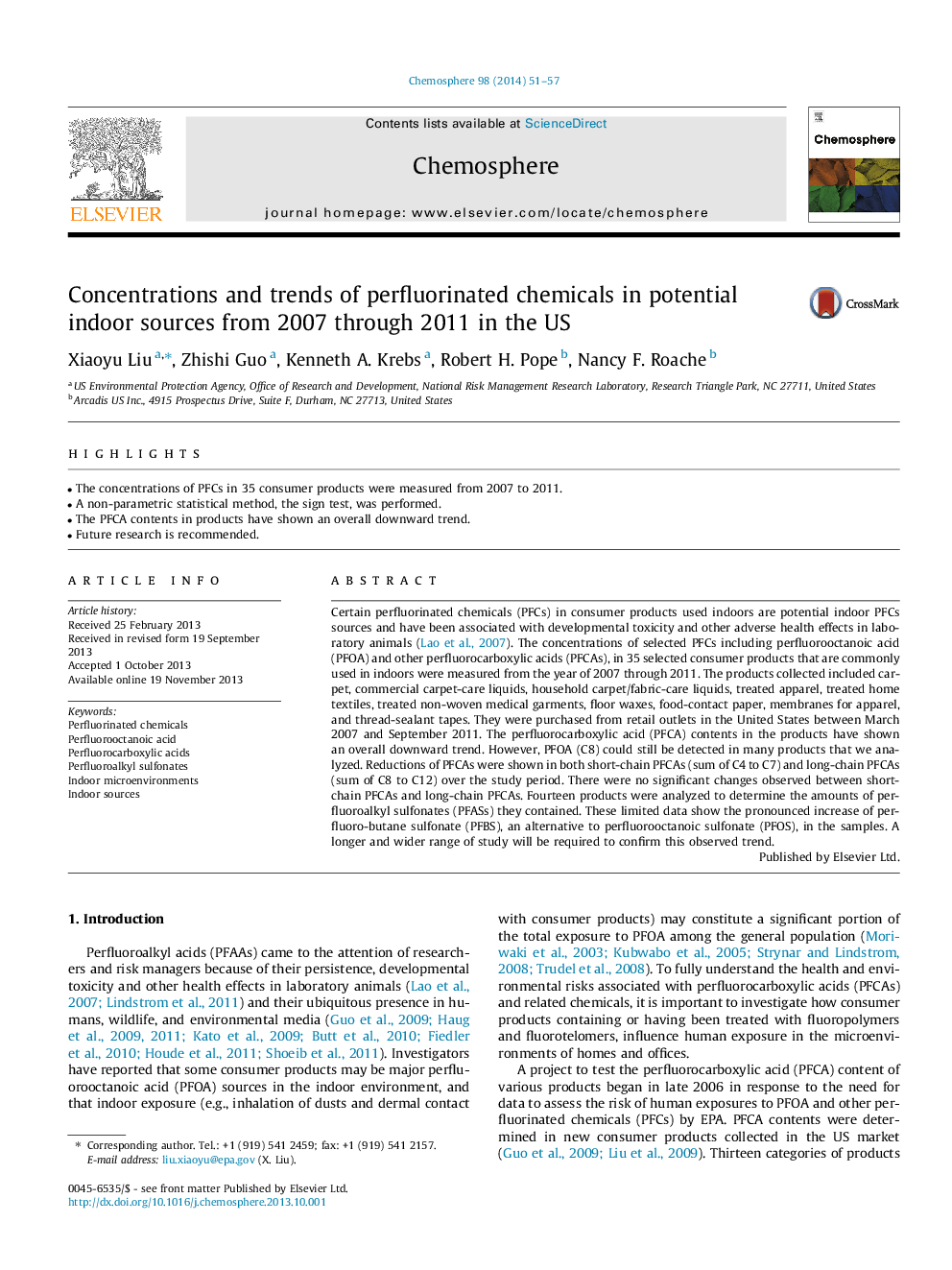| کد مقاله | کد نشریه | سال انتشار | مقاله انگلیسی | نسخه تمام متن |
|---|---|---|---|---|
| 4408964 | 1618873 | 2014 | 7 صفحه PDF | دانلود رایگان |
• The concentrations of PFCs in 35 consumer products were measured from 2007 to 2011.
• A non-parametric statistical method, the sign test, was performed.
• The PFCA contents in products have shown an overall downward trend.
• Future research is recommended.
Certain perfluorinated chemicals (PFCs) in consumer products used indoors are potential indoor PFCs sources and have been associated with developmental toxicity and other adverse health effects in laboratory animals (Lao et al., 2007). The concentrations of selected PFCs including perfluorooctanoic acid (PFOA) and other perfluorocarboxylic acids (PFCAs), in 35 selected consumer products that are commonly used in indoors were measured from the year of 2007 through 2011. The products collected included carpet, commercial carpet-care liquids, household carpet/fabric-care liquids, treated apparel, treated home textiles, treated non-woven medical garments, floor waxes, food-contact paper, membranes for apparel, and thread-sealant tapes. They were purchased from retail outlets in the United States between March 2007 and September 2011. The perfluorocarboxylic acid (PFCA) contents in the products have shown an overall downward trend. However, PFOA (C8) could still be detected in many products that we analyzed. Reductions of PFCAs were shown in both short-chain PFCAs (sum of C4 to C7) and long-chain PFCAs (sum of C8 to C12) over the study period. There were no significant changes observed between short-chain PFCAs and long-chain PFCAs. Fourteen products were analyzed to determine the amounts of perfluoroalkyl sulfonates (PFASs) they contained. These limited data show the pronounced increase of perfluoro-butane sulfonate (PFBS), an alternative to perfluorooctanoic sulfonate (PFOS), in the samples. A longer and wider range of study will be required to confirm this observed trend.
Journal: Chemosphere - Volume 98, March 2014, Pages 51–57
